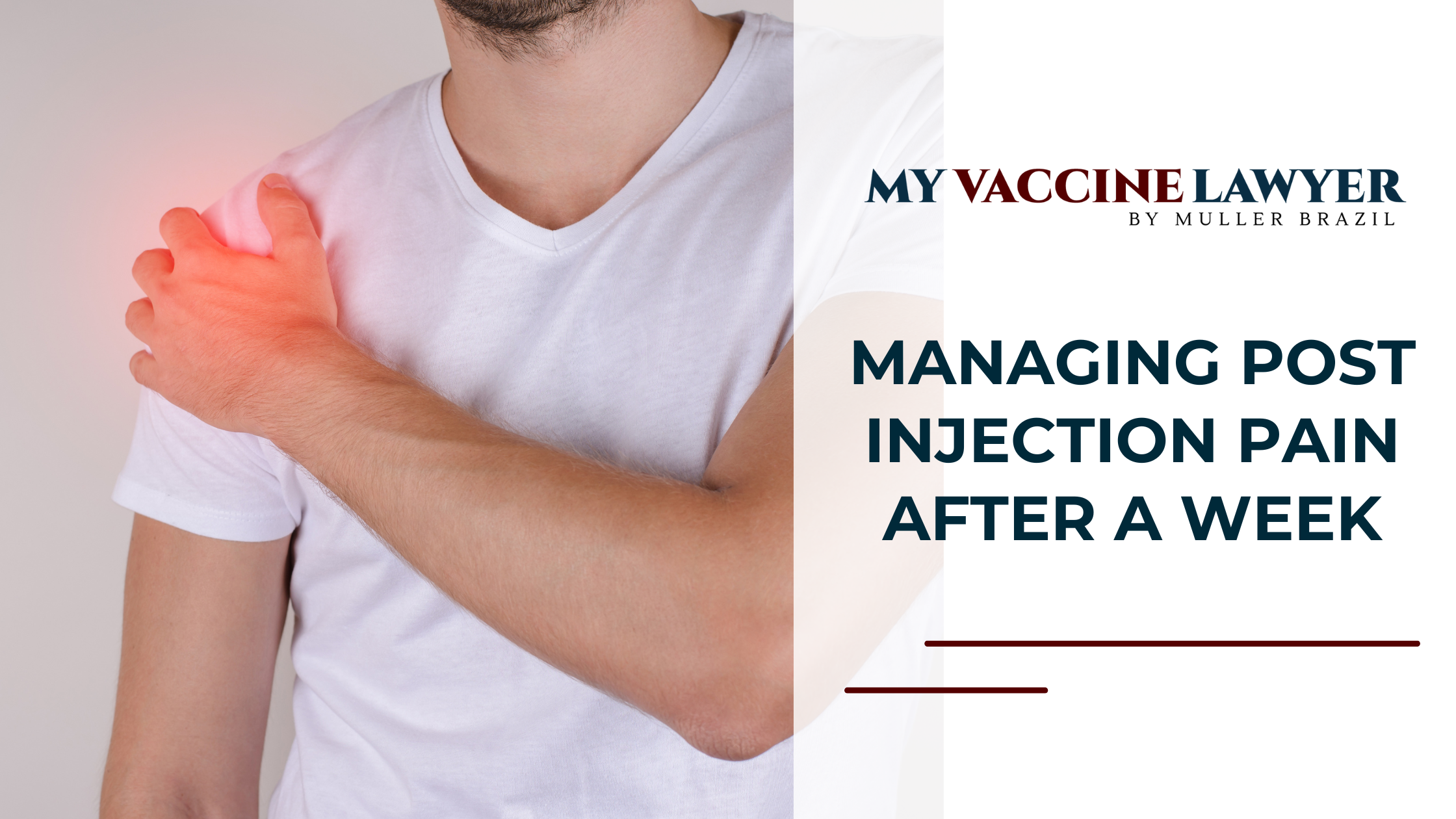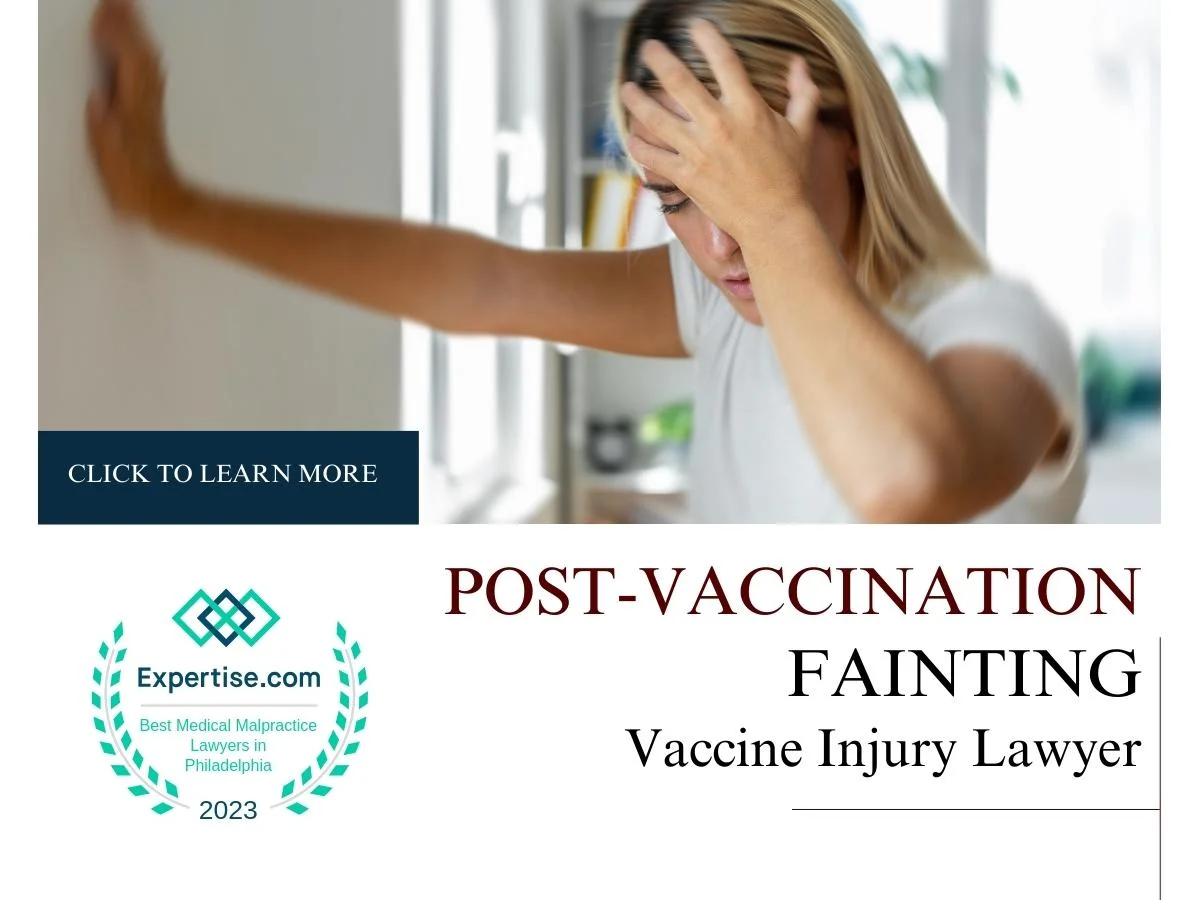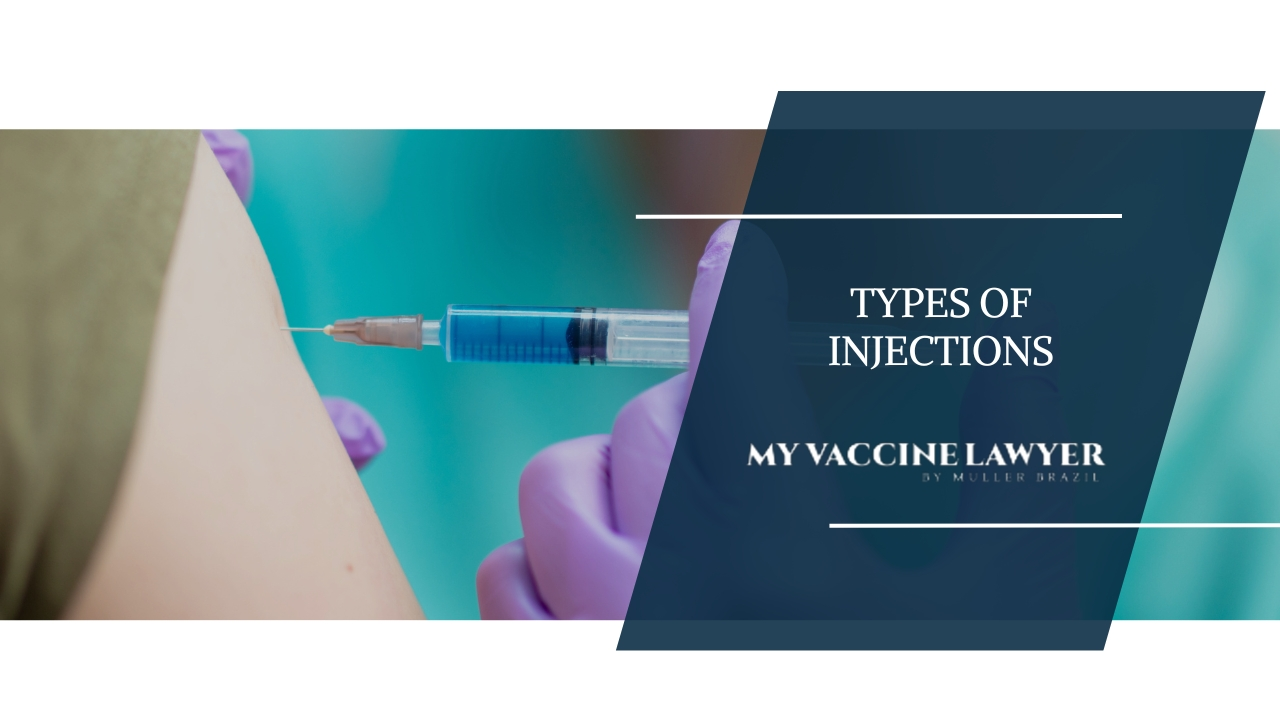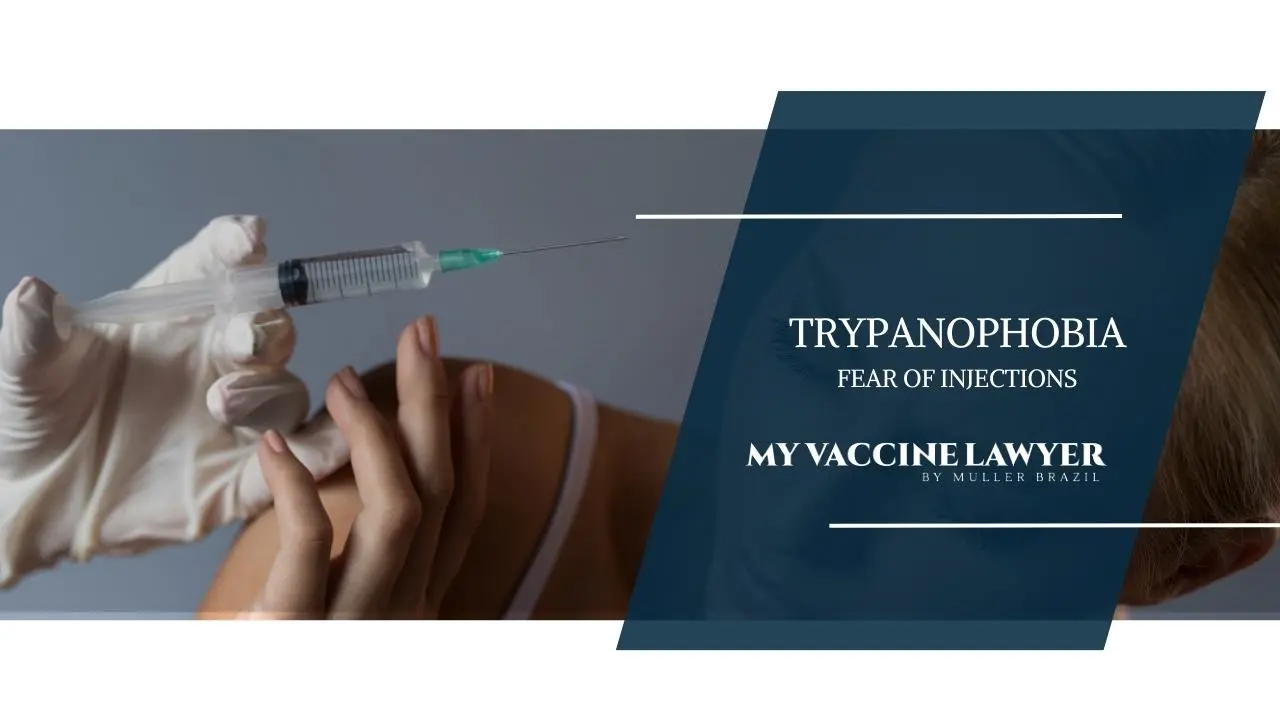Managing Post Injection Pain After a Week
Injections are a common part of medical care, whether for vaccinations, medications, or other post injection inflammation treatments.
7 min read
Vaccine Injury Law Resources / Trypanophobia / Understanding Trypanophobia: Fear of Needles Explained
 Paul Brazil
:
Oct 16, 2023 5:53:07 AM
Paul Brazil
:
Oct 16, 2023 5:53:07 AM
If you have a fear of needles, called trypanophobia, you're not alone. This fear can cause severe anxiety and physical reactions, making it difficult to get necessary medical treatments. There are effective treatments like cognitive-behavioral therapy, exposure therapy, and medication that can help manage this fear. Overcoming trypanophobia can improve your health and well-being by ensuring you get the medical care you need.
According to a Survey of the prevalence of immunization non-compliance due to needle fears in children and adults published in the Journal of Advanced Nursing, it's estimated that 24% of adults and up to 63% of children and adolescents exhibit some degree of needle phobia.
Some individuals even avoid important medical appointments and medical care due to this fear of needles. Gaining a deeper understanding of Trypanophobia—its definition, causes, and symptoms—is pivotal for those facing this challenge and those who aim to support them.
Trypanophobia is the overwhelming, extreme fear of medical procedures involving needles.
The term combines the Greek words "trypano," which means puncturing or piercing, and "phobia," denoting fear. While it's closely related to the fear of needles, pins, or other sharp objects, Trypanophobia specifically pertains to medical settings.
Classified as a specific phobia, its significant impact on health decisions is evident, with reports suggesting that it may lead 16% of people in the US to skip vaccinations, according to an article published by The Centers for Disease Control and Prevention (CDC).
The phobia of needles results in intense worry but can also lead to missed doctor appointments, compromising an individual's overall health.
The prognosis of immune thrombocytopenia (ITP) can significantly hinge on its cause. Broadly categorized, ITP can manifest as primary or secondary.
Primary ITP, in its distinct nature, emerges without any traceable underlying cause. On the other hand, secondary ITP arises due to another initiating condition or disease.
Influences leading to secondary immune thrombocytopenic purpura cover a spectrum, including certain vaccines, specific medications, or even other autoimmune disorders, as detailed in a study published by the International Journal of Infectious Diseases.
It's noteworthy to highlight the difference in risk between the two types. Those grappling with secondary ITP face a heightened mortality risk compared to their counterparts with primary ITP.
Diving deeper into statistics, a study from Denmark published in Transfusion Journal presented intriguing findings: while primary ITP patients had a median survival rate shortened by 5.1 years compared to the average person, those with secondary ITP faced a more pronounced reduction, with their median survival rate being 11.1 years less than the general populace.
Research sheds light on the frequency of Trypanophobia, revealing that this specific phobia of shots is notably high among children, with estimates indicating that between 33% to 63% grapple with a pronounced fear of needles.
While some individuals outgrow this phobia as they transition into adulthood, many persistently carry it with them. It's not uncommon to find adults afraid of needles, underscoring the importance of understanding and addressing this concern not just as a childhood fear but as an issue that can span a lifetime.
While understanding the phobia of needles is important, pinpointing its exact origin can be complex. Experts often cannot attribute Trypanophobia to a single cause, given the individualized nature of phobias. Here are some potential causes and factors associated with Trypanophobia:
Understanding these potential causes is instrumental in managing and addressing the fear effectively.
When it comes to fear of needles symptoms, those with Trypanophobia often face more than just a fleeting sense of discomfort. The very thought of needles can create a deep emotional and physical reaction. Here's a breakdown of the typical emotional and physical symptoms associated with Trypanophobia:
Recognizing these symptoms is the first step to understanding the gravity of Trypanophobia and the pressing need for effective interventions and support.
Many individuals often wonder why am I scared of needles? The roots of Trypanophobia, or the fear of needles, can be complex and layered. Several factors and circumstances might increase the likelihood of someone developing a phobia of needles. Here are the most common risk factors associated with Trypanophobia:
Awareness of these risk factors helps healthcare professionals and support circles provide compassionate care to those dealing with needle fears.
How is trypanophobia diagnosed?
Identifying a fear of needles isn't just a casual observation. Medical diagnoses for Trypanophobia involve a systematic evaluation by a healthcare professional. Here's how professionals approach the diagnosis:
This thorough assessment ensures accurate diagnosis and allows healthcare professionals to recommend appropriate management strategies for needle-phobic patients.
How is trypanophobia treated?
For those dealing with trypanophobia, seeking professional guidance is highly recommended. Personalized coping strategies are provided, and treatment also significantly mitigates the challenges associated with severe physical reactions, such as fainting at the sight of needles.
The treatment for trypanophobia, or needle phobia, typically adopts a comprehensive approach, recognizing that each individual's experience and needs may differ. Here are some commonly utilized treatments:
By trying these treatments, many individuals find significant relief and regain the confidence to return to medical settings without extreme fear.
What can I do to overcome trypanophobia?
Managing trypanophobia doesn't necessarily mean overcoming the fear entirely but learning techniques to handle it.
While the sensation or thought of needles might always create discomfort, numerous coping mechanisms can significantly reduce its intensity. Here are some steps you can take if you want to know how to overcome the fear of needles:
Incorporating these strategies makes medical procedures involving needles more bearable. While they may not eliminate the phobia, they can provide the means to manage and lessen its impact on daily life.
When should I seek help for trypanophobia?
While common, the phobia of shots or any medical procedure involving needles should not inhibit your access to necessary healthcare.
Recognizing when this fear starts affecting your well-being is important. You might need to seek professional help for trypanophobia if:
If any of the above resonates with your experience, seeking assistance is essential. A Mental health provider offers multiple strategies, such as coping mechanisms and therapy designed for your needs. Remember, taking that step towards treatment opens the doors to improved health, both mentally and physically.
Paul Brazil is a native of Dunmore, Pennsylvania and a graduate of Dunmore High School. For his undergraduate education, he attended Bloomsburg University where he majored in political science. He then went on to earn his JD from Widener University School of Law. Following graduation from law school, Mr. Brazil worked at a large Philadelphia civil defense firm where he litigated workers’ compensation claims and Heart and Lung Act cases. In 2012, he joined with his coworker Max Muller to form Muller Brazil.

Injections are a common part of medical care, whether for vaccinations, medications, or other post injection inflammation treatments.

Ready to start your own massage therapy business? Creating a solid business plan is the first step to success. This guide will help you with...

The proper administration of injections is critical in the healthcare field, and it’s beneficial to be aware of all their different types with...
